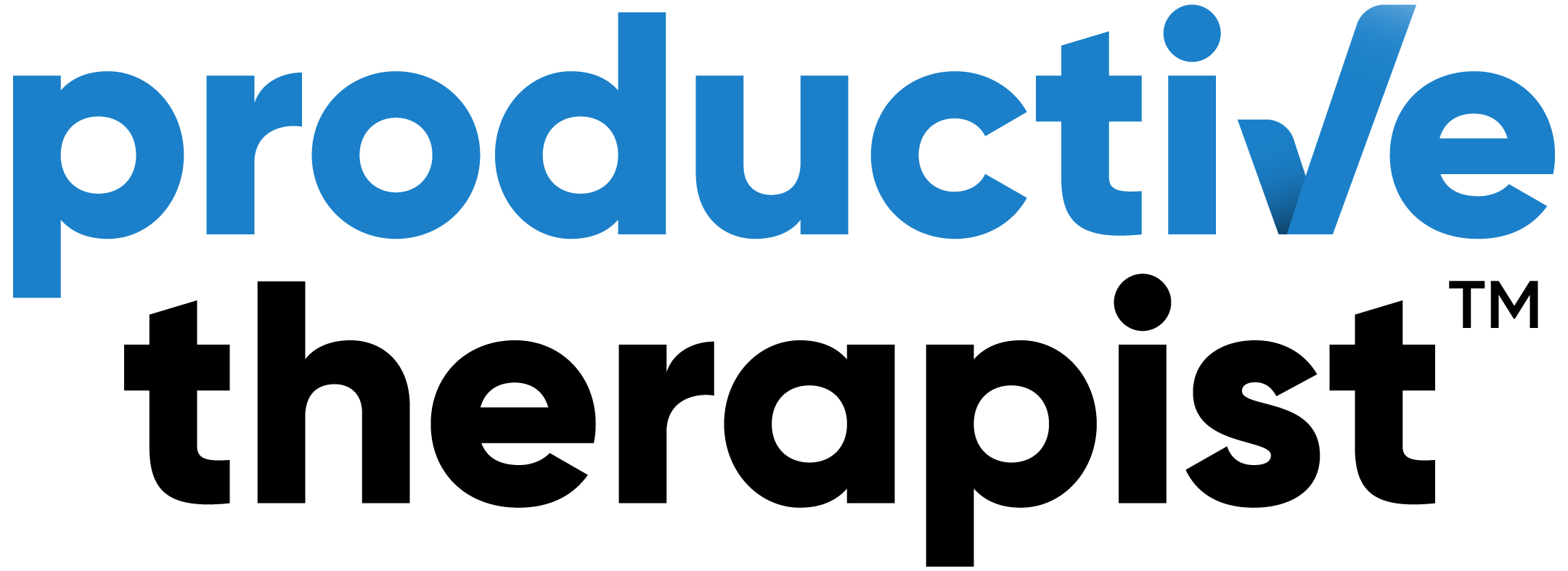Below is the full transcript from this podcast episode. Enjoy!
Uriah: What kind of regular chores do you wish you could avoid if possible?
Tracel: Oh man, I hate-I have hardwood floors throughout my entire house, which is nice, but I also have 3 dogs…
Uriah: [laughs] yes…
Tracel:…So there is constant, constant pet hair that I have to sweep up everyday, uhh, so if somebody could that for me that would be amazing!
Uriah: I have the same challenge with one very, umm, hairy dog [laughs] and here’s, here’s the catch my dog is black and white, so if you wear black clothes you get white hair on you [laughs] and if you wear white clothes you get black hair on you. So, I’m with you on that one.
Tracel: Nice…
Uriah: And, I also have a black-haired cat, so it’s double.
Tracel: Oh man.
Uriah: Yeah. So I tell you, one of the things that therapists don’t really enjoy doing, but we have to do, is write progress notes for our therapy sessions. And it’s a common problem with a lot of therapists some are better than others, but we all struggle with it to some degree. And especially when we get busy and we’re seeing a lot of clients, 15, 20, 30 clients or so.
Tracel: Yes…
Uriah: And then also for group practice owners who have a lot on their plate in addition to seeing clients, it kinda, it could really stack up.
Tracel: Right. So there has to be some things over the years that you’ve learned, things that you can kind of put into place to make things a little bit simpler for yourself.
Uriah: Just a few things that I’ve done over time, and it’s changed a little bit. Umm, I don’t like the feeling of tasks stacking up and you know mentally knowing that I’m behind on something. So I like to keep up with it,…
Tracel: Yes.
Uriah: Umm, and especially a few years ago when I was seeing a lot more clients, I had a particular set of rules for myself just to keep on top of that task, so I would actually always finish my notes either in-between sessions, sometimes when I was very on top of things or at least I would always complete that day’s notes before leaving the office, so that was my rule and I very rarely broke that rule. It worked pretty well.
Tracel: Yeah, that sounds like it would be efficient.
Uriah: The only problem was that I worked with teenagers a whole lot, so I would work until 9 o’ clock and my last client would leave around 9 o’ clock.
Tracel: Oh man.
Uriah: And then I would sometimes stay ‘til 9:45 or 10, and then, umm sometimes get in trouble with my family about being home late. But, I got my notes done.
Tracel: [Laughs]
Uriah: So that’s one thing.
Tracel: You have to have some balance.
Uriah: You do, you do for sure, but then I could go home and not worry about, wake up the next day and not think about it right away.
Tracel: Yeah
Uriah: So creating some kind of rule for yourself, some sort of ritual or routine that you stick to and if you get off of is sometimes, you come back to it, right?
Tracel: Yes, yes.
Uriah: Another thing that’s helpful and this is honestly what I do now, because I don’t see nearly as many clients, is I have a recurring reminder on my ToDoist list. And, it tells me basically every Wednesday to finish my notes from, from Monday. So I don’t do it every day anymore, but I catch up on a particular day and I make sure that I, I complete it on that timeline.
Tracel: Well that sounds like a real good system.
Uriah: It seems to be working really well for me. Umm and then the other tip is to build breaks into your schedule to allow time to finish writing notes. Umm, which is something that I think very busy therapists are not always good at, because we tend to stack our schedule and sort of plan for cancellations or you know no-shows, and will use that time in-between. But probably for, if we’re talking about, ideal balance and work life situation it would be great to have breaks in-between you know chunks of clients during the day to catch up on those things.
Tracel: Now it seems like it would reduce some stress if you knew that you had a period of time that was coming up dedicated to finishing your notes, then wouldn’t have to worry about trying to fit it in somewhere.
Uriah: Absolutely. I mean some people will do all of their notes for the week at the end of the week, or something like that. I personally just found that my memory was not that great. So if I did no…
Tracel: Right
Uriah: …if i tried to do notes on a Thursday for a Monday session..
Tracel: Yes.
Uriah… I will just forget so many of the important things that happened.
Tracel: Mmhmm.
Uriah: Umm, I guess you know something I didn’t even think about until we’re talking and recording this, is that there are a lot of people who actually take notes while they’re in session whether its on paper or on an IPAD or something like that. And that can be incredibly efficient, right?
Tracel: Right.
Uriah: Yeah. And than I have a quick tip I wanna share and this is maybe more applicable for people who have a group practice, but it’s not a bad idea to have your assistant or your virtual assistant generate and send out a report from the EHR on missing notes for you, you as a practice owner and for your clinicians to make sure that nobody, you know, leaves them undone.
Tracel: Yeah, that’s a great idea.
Uriah: Yeah, for sure. So whatever it takes, we have to find ways to create systems and procedures to get these things done. It’s not the fun part, but it’s obviously important for a number of reasons. And, if you like more tips and strategies for being a productive therapist head on over to our website and check out our resources. You can find everything that we have to offer at productivetherapist.com.
Thanks for listening, bye Tracel.
Tracel: Bye.

